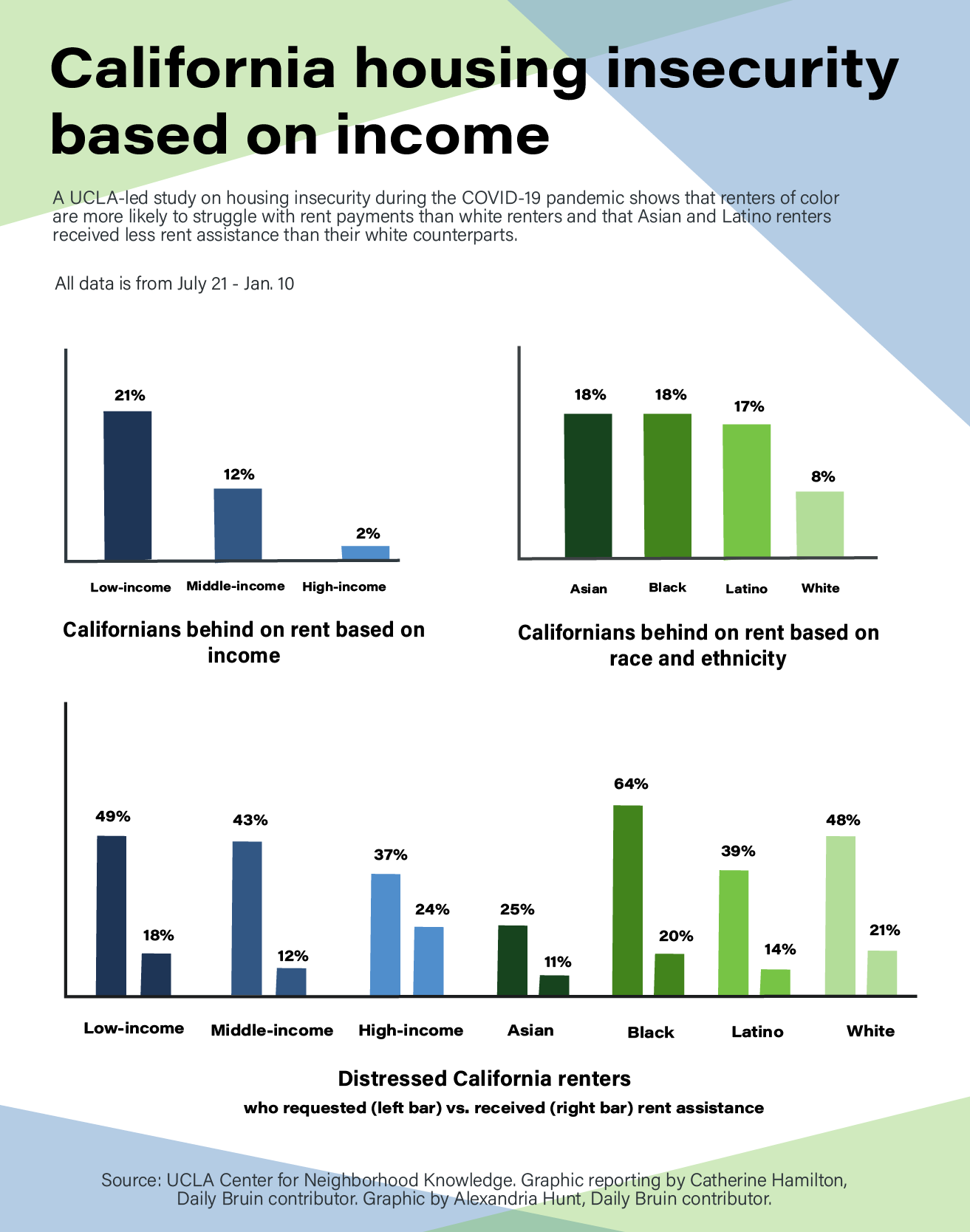Assembly Bill 1482 allows 10% rent increase, will impact Westwood renters

California Assembly Bill 1482 is allowing rent increases of up to 10% this month because of increased inflation. The bill will apply to Los Angeles housing, though only units not covered already by a local rent stabilization ordinance. (Lauren Man/Daily Bruin senior staff)
By Lex Wang
Aug. 21, 2022 12:15 p.m.
This post was updated Aug. 21 at 8:37 p.m.
Across California, Assembly Bill 1482 is allowing rent increases of up to 10% starting this month due to inflation.
AB 1482, otherwise known as the California Tenant Protection Act of 2019, is a statewide law that prohibits rent increases above either the sum of 5% and the local Consumer Price Index – a measure of inflation – or 10%, whichever value is lower. In June, the Los Angeles area’s CPI was 8.6%, and as the sum of 5% and 8.6% is larger than 10%, the maximum rent increase has become 10% this year.
Certain rental units may be exempt from these protections, according to the California Apartment Association. In addition to a few other miscellaneous provisions to exclude certain properties, the Tenant Protection Act broadly excludes any housing built within the past 15 years on a rolling basis, as well as most single-family housing.
The Tenant Protection Act also excludes any units covered by a local rent stabilization ordinance, said Shane Phillips, housing initiative manager at the UCLA Lewis Center for Regional Policy Studies and co-host of the UCLA Housing Voice podcast. He added that in some ways, the bill was created to cover such units.
“AB 1482 applies to a broader set of homes, but it is less restrictive than most local rent stabilization ordinances,” Phillips said. “And where the two conflict, the stricter one carries the day; it is the one that actually has force of law. And … that is generally going to be, if not always, the local rent stabilization ordinance.”
Phillips said although LA has its own rent stabilization ordinance, most cities do not have such ordinances in California – meaning sometimes rent control is only regulated through the Tenant Protection Act.
Phillips said although the Tenant Protection Act could be stronger, the law is currently protecting many people from facing much larger rent increases.
“It’s a good thing we passed this law when we did,” Phillips said. “Certainly some people will – I think understandably – say that this is not sufficient protection, that a 10% increase is still too much for many households. And it is, but if you consider where we would be without this law in place right now, … I’m glad it’s here.”
Furkan Yalcin, president of the North Westwood Neighborhood Council, said it’s expected that many renters in Westwood will feel the brunt of the Tenant Protection Act’s recent rent increase. He added that as inflation increases but wages remain the same, tenants are forced to spend a higher percentage of their income on a place to live – impacting their quality of life significantly.
Yalcin added that it should be up to elected officials to provide a solution by constructing more public housing, affordable housing, permanent supportive housing and market-rate housing.
In addition, Yalcin said UCLA’s latest four-year housing guarantee for students is a step in the right direction in regards to the issue, especially as the housing shortage in the country causes rent prices to skyrocket.
“I will commend UCLA for guaranteeing housing for all students on campus,” Yalcin said. “If that on-campus housing wasn’t there, those folks would be renting from the apartments around UCLA and making the prices go up even more because there’s more competition.”
Alison Simard, the communications director for District 5 Councilmember Paul Koretz, said in an emailed statement that the city of LA has previously distributed federally funded emergency rental assistance. Simard added that when city funds ran out, the city deferred to the state for further assistance, but since the application period’s expiration in March, the city has not begun a motion to restart rental assistance.
Simard said that while another round of state rental assistance may occur, it’s improbable that a large number of tenants protected under AB 1482 would qualify. Simard added that city and state programs are designed primarily to assist low-income tenants; however, few low-income tenants can afford housing unprotected by the LA Rent Stabilization Ordinance and protected by the Tenant Protection Act.
Yalcin said that in the meantime, he advocates for people to lobby their elected officials to create change and encourages others to spread the word – whether or not tenants themselves are able to do anything about the rent increase.
“I think housing is such a difficult issue to make progress on because there’s a lot of people that have an interest in it,” Yalcin said. “(But) there are a few bills that make me hopeful.”



